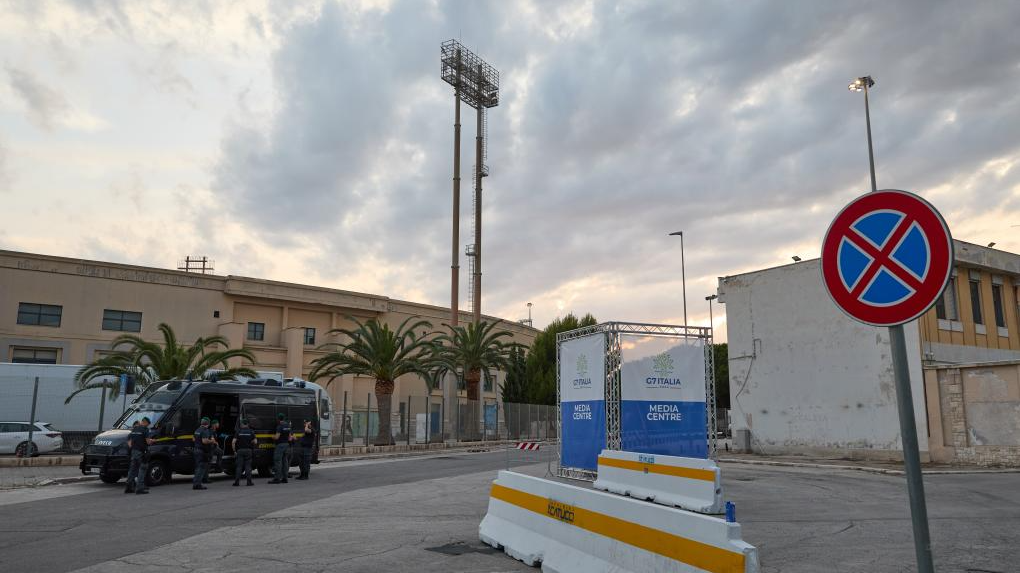By William Jones
The Group of Seven (G7), formerly representing the seven most powerful nations in the world, are holding their annual meeting this year in Apulia, Italy. The significance of the G7, or one might now simply call it the "gang of seven," has dwindled considerably since its formation in 1970s. At that time, it was undoubtedly the major power broker in the world, with the world's largest economies composing its ranks.
Today, as China and Russia figure among the top economies of the world but are not members of the G7, this has significantly undercut the economic power of the group. In addition, the growing political influence of the countries of the Global South has enabled them to assert their own political interests, which are not always aligned with those of the G7. The former have also begun to form their own groups, like the BRICS, and the Shanghai Cooperation Organization, with adherence to political trust, win-win cooperation, equality between nations, openness and inclusiveness as well as equity and justice.
While the G7 expanded only for a short time when it let Russia take part in its political, but not in its economic, discussions, BRICS has been expanding with a long list of countries, primarily from the Global South. The "Greater BRICS," as it's being called, is doing much more now to preserve peace and harmony in the world, while the G7 at the moment remains the prime driver for a more contentious and restrictive global world order.
However, some of the G7 leaders are in political difficulties back home largely because of the G7 "consensus" on a number of issues. Both French President Emmanuel Macron and German Chancellor Olaf Scholz suffered major losses during the recent elections to the European Parliament, and British Prime Minister Rishi Sunak is also facing a tough election he had to call for because of diminished public confidence in his administration. U.S. President Joe Biden too is going into what could become a very contentious election. So the Apulia summit may well be a "lame duck" gathering.
War is one of the main topics of discussion at the Apulia meeting. Most of the G7, led by the U.S. and the UK, want to pursue the war in Ukraine until Russia is expelled from all the territory it now controls in the eastern Russian-speaking part of Ukraine. They will also raise objections to what the EU leadership and the U.S. are calling China's "overproduction." This will not sit well with countries like Germany, whose industry is doing well in China simply by observing the rules of the market.
The G7 has realized that they are becoming a minor player in the broader political world and therefore Italy decided to invite 12 non-G7 world leaders to attend the meeting, indicating that Western leaders are beginning to take the Global South into greater consideration.

Police stand guard outside the media center of the G7 summit in Bari, Apulia region, Italy, June 12, 2024. [Photo/Xinhua]
The agenda of "BRICS" is different. All members are regarded as equal and the overriding issue is to create a world financial system that is beneficial to the countries still ensconced in poverty and to prevent any power from using its financial influence as a political tool. There is also a clear attempt to create a more harmonious and peaceful world. A daunting agenda, but one which has been in the works for decades.
It is unlikely that any of BRICS member countries will be wooed away from the goal to establish a more just global governance system by any token participation in a predominantly Western political organization.
There will also be rifts among the G7 members themselves. The U.S. is pushing to use the interest on frozen Russian funds to finance a whopping $50 billion support package for Ukraine and Russia has indicated that it will react. Extensive Western assets still exist in Russia, and these could well be forfeited.
The UK and the U.S. will also push for action against Chinese imports, which could raise some opposition among the members, not to mention the reaction of the guests from the Global South.
William Jones, a special commentator on current affairs for CGTN, is the former Washington bureau chief for Executive Intelligence Review News Service and a non-resident fellow of the Chongyang Institute for Financial Studies.

 中文
中文



